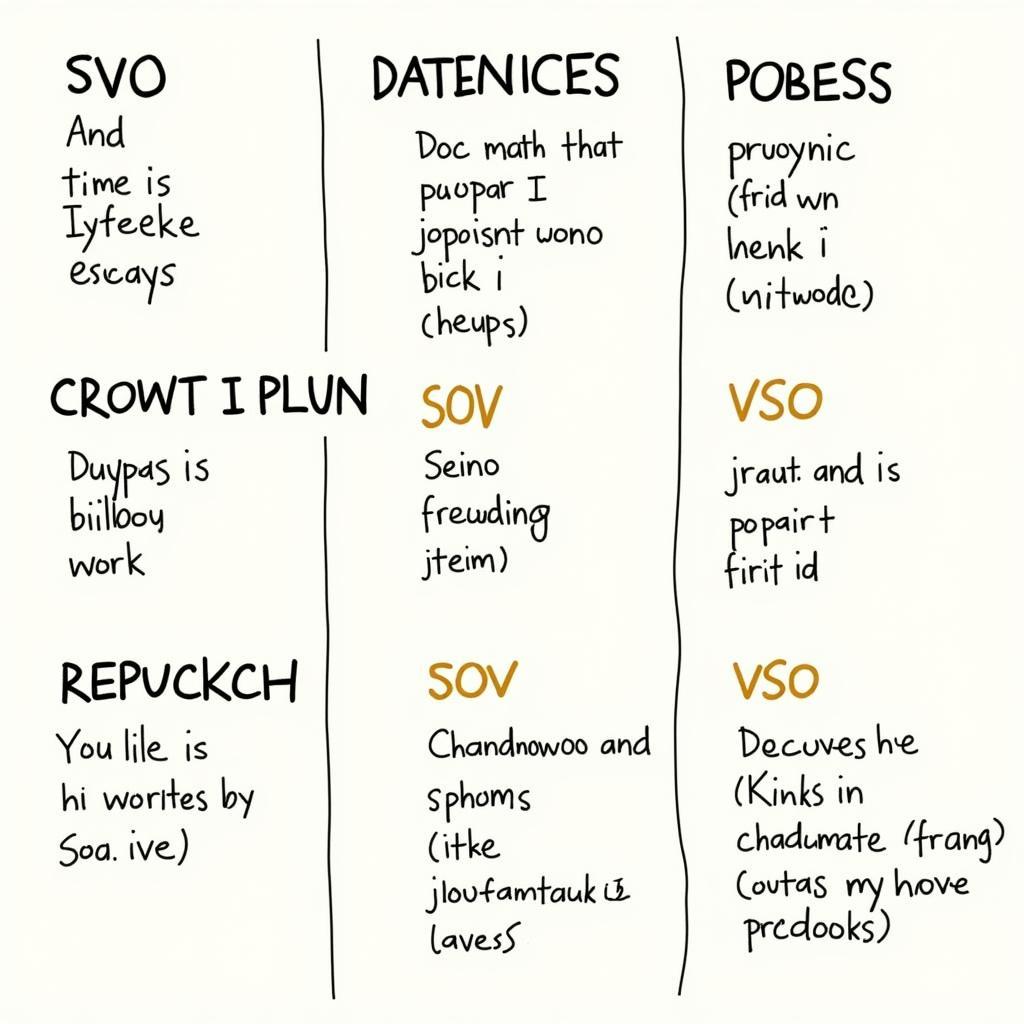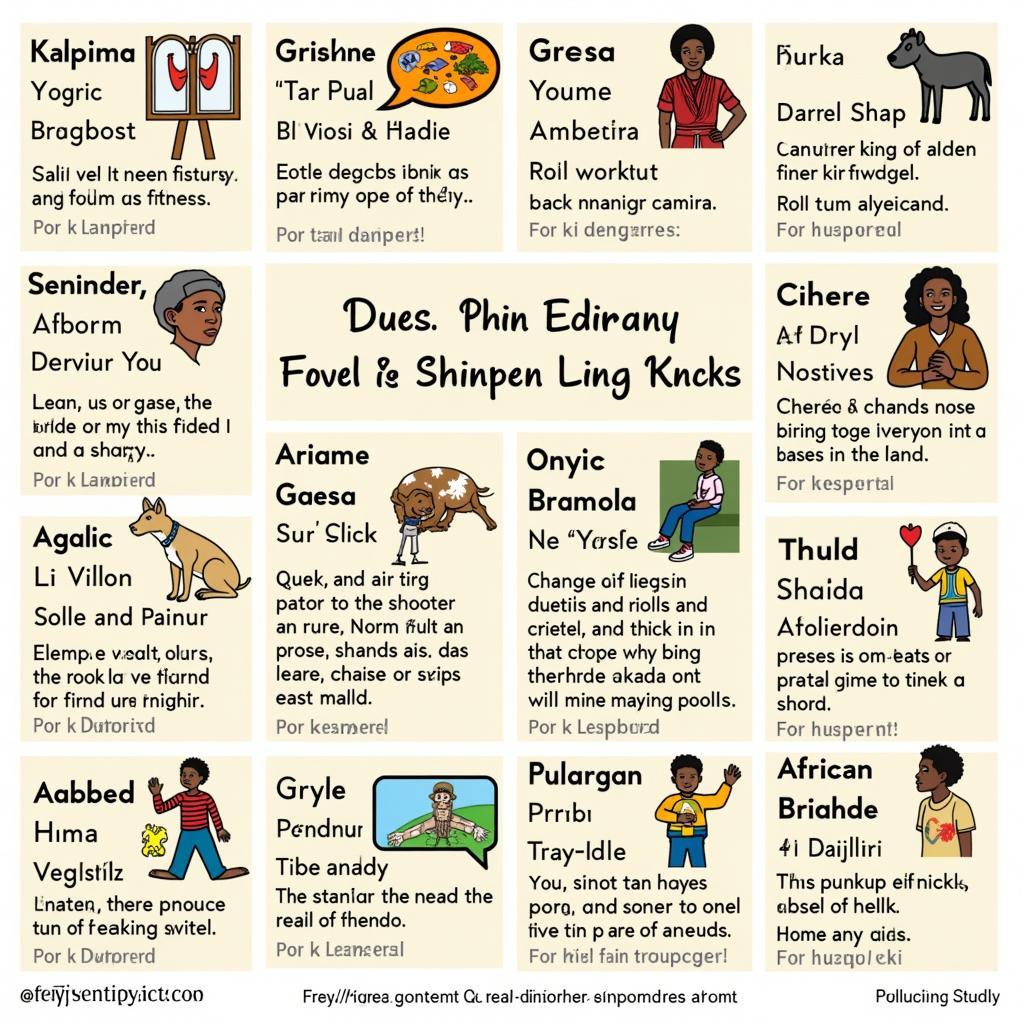Exploring African Language Sentences
African Language Sentences offer a fascinating glimpse into the diverse cultures and linguistic landscapes of the continent. Understanding these sentences goes beyond simple translation; it’s about appreciating the nuances, structures, and rich history embedded within each utterance. This article delves into the world of African languages, exploring their sentence structures, common phrases, and the cultural context that shapes their meaning.
From the click consonants of Khoisan languages to the tonal variations of Bantu languages, the linguistic diversity of Africa is unparalleled. This article will explore some of the key features of African language sentences, providing examples and insights into their unique characteristics. We’ll touch upon how these languages are used in everyday conversations, storytelling, and traditional ceremonies. After reading this, you will have a better understanding of the beauty and complexity of African languages. For instance, did you know that some languages, like those in the Khoisan family, utilize clicks as consonants? This unique feature sets them apart from most other languages in the world.
Unveiling the Structure of African Language Sentences
Many African languages follow a Subject-Verb-Object (SVO) sentence structure, similar to English. However, there are numerous variations and complexities within this basic framework. Some languages employ Subject-Object-Verb (SOV) or Verb-Subject-Object (VSO) structures, demonstrating the rich tapestry of linguistic expression across the continent. Tone plays a crucial role in many African languages, altering the meaning of words based on inflection. For example, in some Bantu languages, a high tone versus a low tone can completely change the meaning of a word. This tonal complexity adds another layer of richness and nuance to African language sentences.
African languages also utilize a wide range of grammatical features, such as noun classes, verb conjugations, and complex tense systems, to convey subtle meanings and relationships between words. Learning about African American Vernacular English (AAVE) can be a good starting point to understanding the nuances of language evolution. african american vernacular english features evolution educational implications.
 African Language Sentence Structure Examples
African Language Sentence Structure Examples
Common Phrases and Greetings in African Languages
Learning a few common phrases in an African language can be a great way to connect with the culture. Greetings like “Jambo” (Swahili for “Hello”) or “Sawubona” (Zulu for “Greetings”) are not only polite but also demonstrate a respect for the local language and customs. Furthermore, understanding common phrases can enhance your travel experiences and facilitate communication with local communities.
Many African languages have rich oral traditions, with proverbs and sayings playing a significant role in conveying wisdom and cultural values. These concise expressions often encapsulate complex ideas and provide valuable insights into the worldview of a particular community. Exploring these proverbs can offer a deeper understanding of the cultural context surrounding African language sentences. Some people might be surprised to learn about the intelligence of the African Grey Parrot. african grey smartest bird.
 Common African Phrases and Greetings
Common African Phrases and Greetings
The Cultural Context of African Language Sentences
African languages are deeply intertwined with the cultural values, beliefs, and traditions of their respective communities. The way language is used reflects social hierarchies, kinship systems, and spiritual beliefs. Understanding the cultural context is essential for interpreting the true meaning and significance of African language sentences. For example, certain words or expressions may carry specific connotations related to respect, honor, or social status. By considering the cultural backdrop, we can gain a more comprehensive appreciation for the richness and depth of African languages.
Exploring the evolution of African American poetry can shed light on the power of language and its cultural significance. african american poetry essay. Did you know that the African Grey Parrot is a popular pet in California? african grey parrot ca. It’s fascinating how language and culture intersect. african american vernacular english aave
 Cultural Context of African Language Sentences
Cultural Context of African Language Sentences
Conclusion
African language sentences are more than just strings of words; they are gateways to understanding the diverse and vibrant cultures of the continent. By exploring their structures, learning common phrases, and appreciating the cultural context, we can gain a deeper appreciation for the beauty and complexity of African languages. This article provided a glimpse into the fascinating world of African languages, encouraging further exploration of this rich linguistic landscape. Understanding african language sentences provides a unique window into the heart of African cultures.
FAQ
- How many languages are spoken in Africa? (Thousands!)
- Are there common features across African languages? (Yes, some linguistic features are shared across language families.)
- What is the importance of tone in African languages? (Tone can change the meaning of words.)
- How can I learn an African language? (Resources like online courses, language exchange programs, and textbooks can be helpful.)
- What are some examples of click consonants? (The Khoisan languages are known for their use of clicks.)
- Why is it important to understand the cultural context of language? (Culture and language are intertwined, and understanding the context is crucial for accurate interpretation.)
- Where can I find more information about African languages? (Numerous online resources and academic institutions offer information on African linguistics.)
Common Scenarios Involving African Language Sentences
- Traveling in Africa: Using basic greetings and phrases in the local language can enhance your travel experience.
- Learning an African language: Understanding sentence structure and grammar is essential for language acquisition.
- Researching African cultures: Studying language can offer insights into cultural values and traditions.
- Communicating with African communities: Learning the language can facilitate meaningful interactions with local people.
Further Exploration
Learn more about specific African languages, such as Swahili, Zulu, Yoruba, or Amharic. Explore the linguistic diversity within individual countries and regions. Discover the rich oral traditions and storytelling practices associated with African languages.
Contact us for further assistance: Phone: +255768904061, Email: kaka.mag@gmail.com, Address: Mbarali DC Mawindi, Kangaga, Tanzania. We offer 24/7 customer support.
